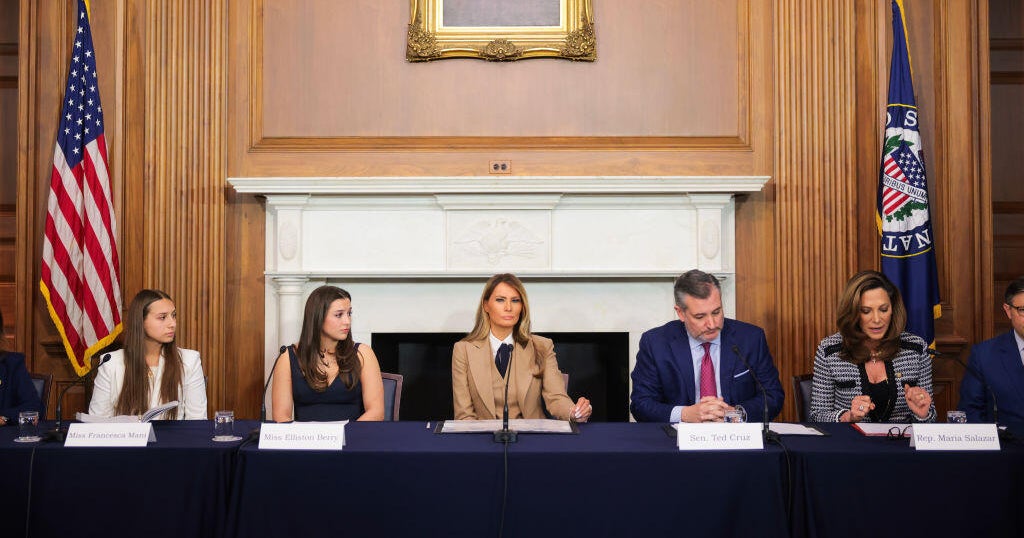Washington — On Monday, the House approved a bipartisan bill that criminalizes posting both real and fake explicit images of individuals online without their consent. This legislation, which received support from First Lady Melania Trump, is now headed to the president for approval.
The new law mandates that social media platforms and websites must take down explicit images and videos, including AI-generated deepfakes, within 48 hours after a victim submits a removal request.
“Being a victim of revenge porn or AI-created explicit content can change your life forever,” Senator Ted Cruz, a Republican from Texas, stated at a roundtable on March 3 to discuss the bill.
Cruz, who sponsored the bill, shared the story of a teenage victim, Elliston Berry, whose classmate created explicit images of her using an app and circulated them among her peers. Berry’s mother struggled for months to have Snapchat remove the images before seeking Cruz’s intervention.
“It shouldn’t require a senator or a member of Congress to call and get an image or video taken down,” Cruz emphasized.
The First Lady, who seldom makes public appearances, participated in the discussion at the U.S. Capitol to push for the bill’s approval in the House.
“It’s heartbreaking to see young teens, particularly girls, facing the challenges posed by harmful online content like deepfakes,” she commented. “This toxic atmosphere can cause serious harm.”
After the bill’s passage, she acknowledged Congress for their support and noted that the bipartisan approval sends a “strong message that we are united in protecting the dignity, privacy, and safety of our children.”
“I am grateful to the Members of Congress — in both the House and Senate — who voted to safeguard our youth,” she added in a statement.
The FBI reports a troubling increase in cases where victims have faced extortion, sometimes leading to suicide. Legislators express hope that this bill will help save lives by giving victims more options.
“The goal of this legislation is clear, significant, and enduring. It aims to stop cyber abuse, prevent bullying among children, and ultimately reduce suicides driven by shame,” said Republican Rep. Maria Elvira Salazar from Florida, who co-sponsored the bill in the House, during the floor discussion on Monday.
Companies like Meta, which owns Facebook and Instagram, alongside TikTok and Snapchat, have expressed their support for the legislation.
However, digital rights advocates caution that the bill’s current wording might restrict legitimate speech, including lawful pornography, and lacks safeguards against malicious takedown requests.


